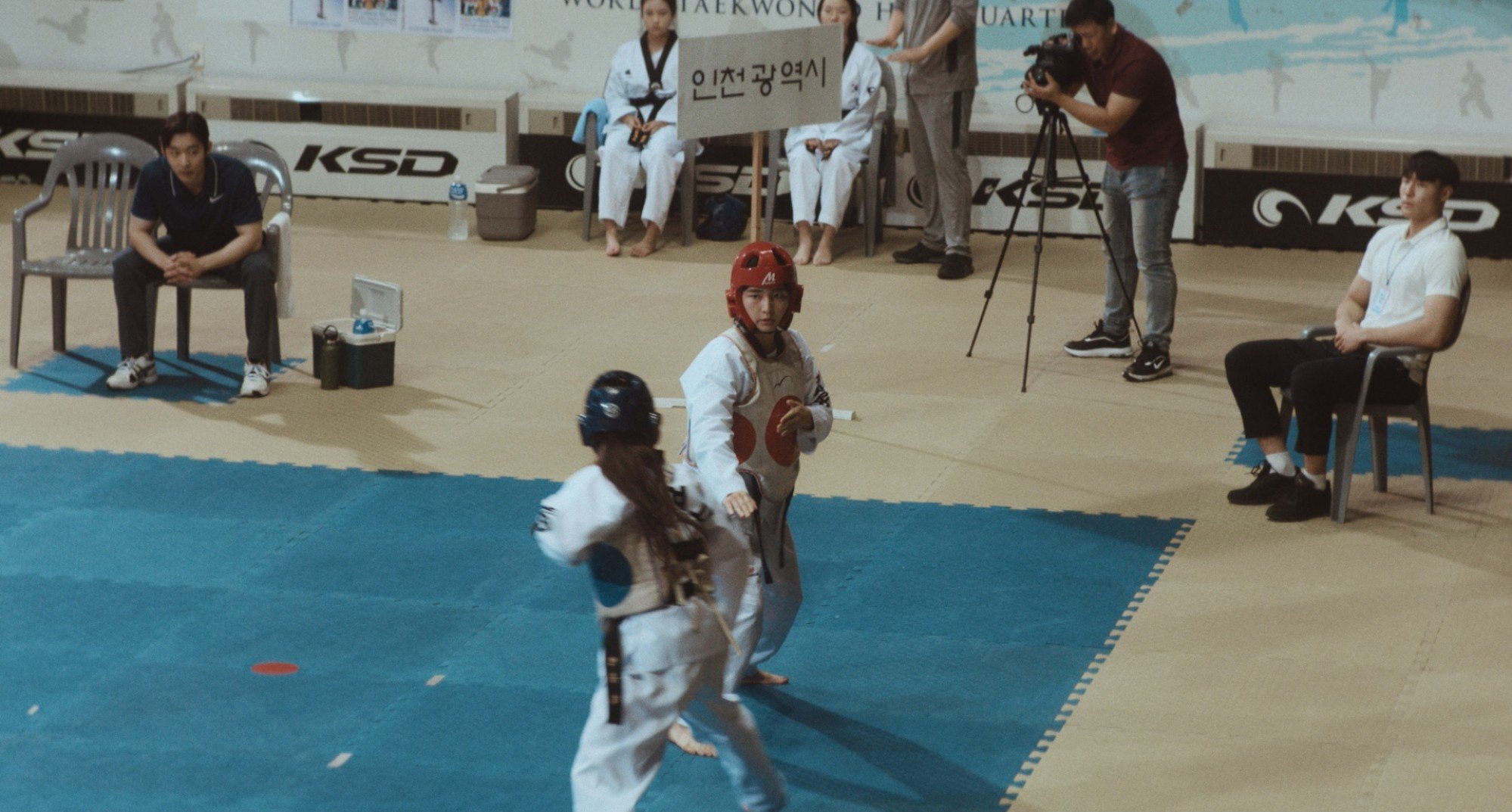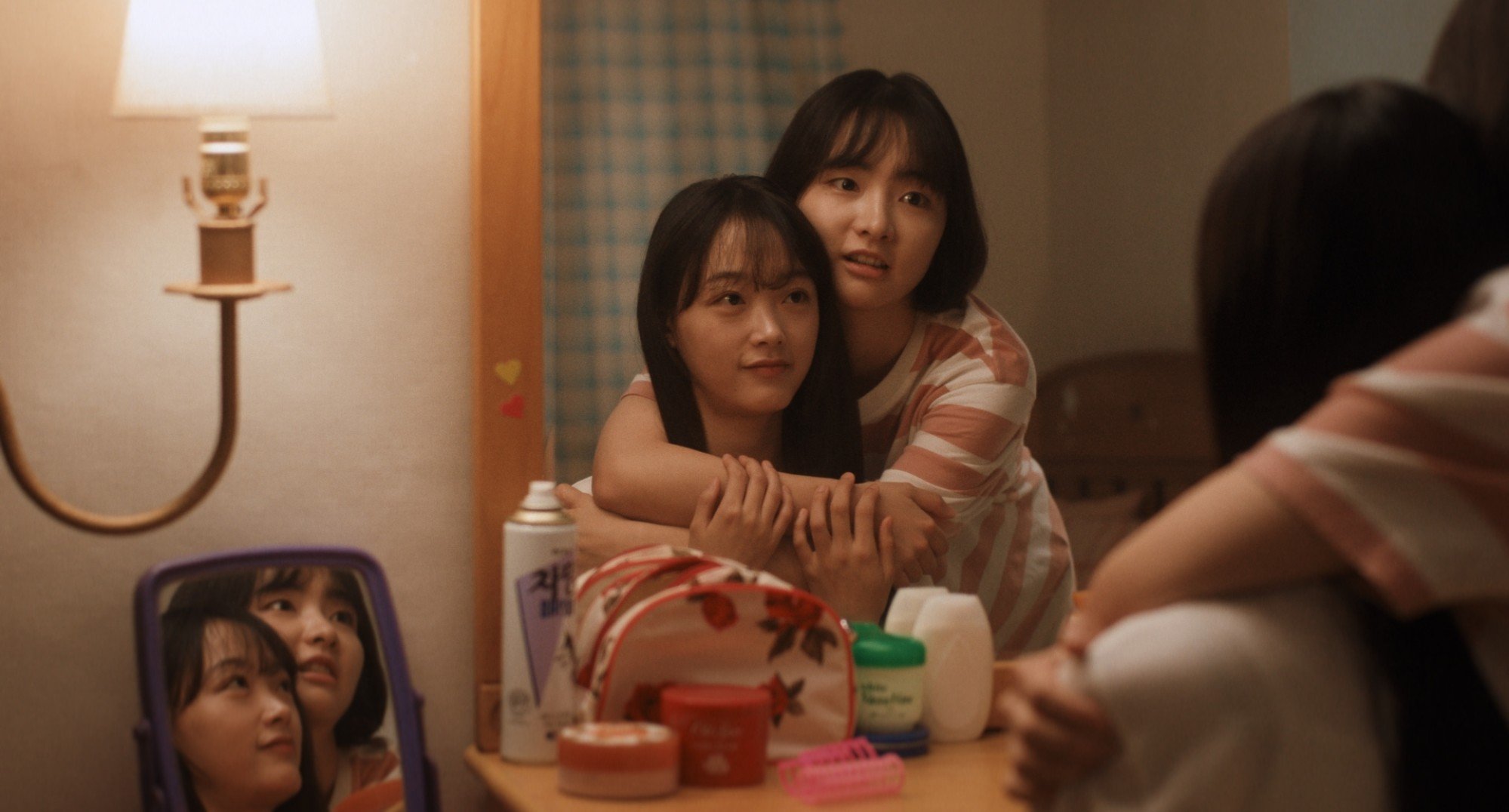
Review | No Heaven, But Love movie review: Squid Game star Lee Yoo-mi in touching queer drama that marks a return to her indie roots
- Squid Game and All of Us Are Dead star Lee Yoo-mi made her name in independent films, and here she plays a waitress in love with a schoolgirl (Park Soo-yeon)
- Lee’s chemistry with Park elevates the film, set in 1990s Korea, by Korean director Han Jay – a vivid and touching tale of young love in an intolerant society
3/5 stars
Despite her new-found celebrity she hasn’t given up on her indie roots, as evidenced by her new film, No Heaven, But Love, a queer drama from director Han Jay which just debuted at the Jeonju International Film Festival in South Korea.
Strictly speaking, Lee is the film’s love interest. The lead role is filled by Park Soo-yeon, who plays high-school taekwondo athlete Ju-young. This continues a sporting theme in her career – she has previously played a teenage runner and basketball player respectively in the notable Korean indie films Anchor and Hoop It Up.
The year is 1999, and people are antsy about the Y2K bug, which scaremongers have claimed will cause the world’s technology to grind to a halt. South Korea is still reeling from the IMF crisis of 1997, which ruined the livelihoods of thousands.
Ju-young is a diffident student bullied by her teammates, who are egged on by their awful coach, a violent young man who terrorises them all, in and out of the practice ring.

One day fast food waitress Ye-ji (Lee) comes to her aid, and when the latter ends up staying with Ju-young and her mother by chance, an unexpected relationship begins to form between the two girls.
Ju-young and Ye-ji’s relationship is a tender but ultimately impossible one. Life is already hard enough for them in 1990s Korea, thanks to Ju-young’s toxic coach and Ye-ji’s limited options as an orphan, but their love for one another only makes things more complicated.
When she first appeared on the indie scene, Lee quickly stood out with her energetic performances as marginalised characters in films such as Park Hwa-young and its loose sequel Young Adult Matters, in which her character also engaged in a queer relationship.

No Heaven, But Love gives her another opportunity to play a colourful character on the fringes of society, and her chemistry with Park elevates the film from some of its more conventional social realist trappings.
Life is hard for Ju-young and Ye-ji and things get much worse before they better, especially when sexual abuse enters the picture.
The director paints a vivid and touching tale of young love in an intolerant society, though at times it touches on too many social issues, particularly as it nears its conclusion.
The relationship is what pulls us in, but the many distractions ultimately distance us from the core relationship the film paints so well.

